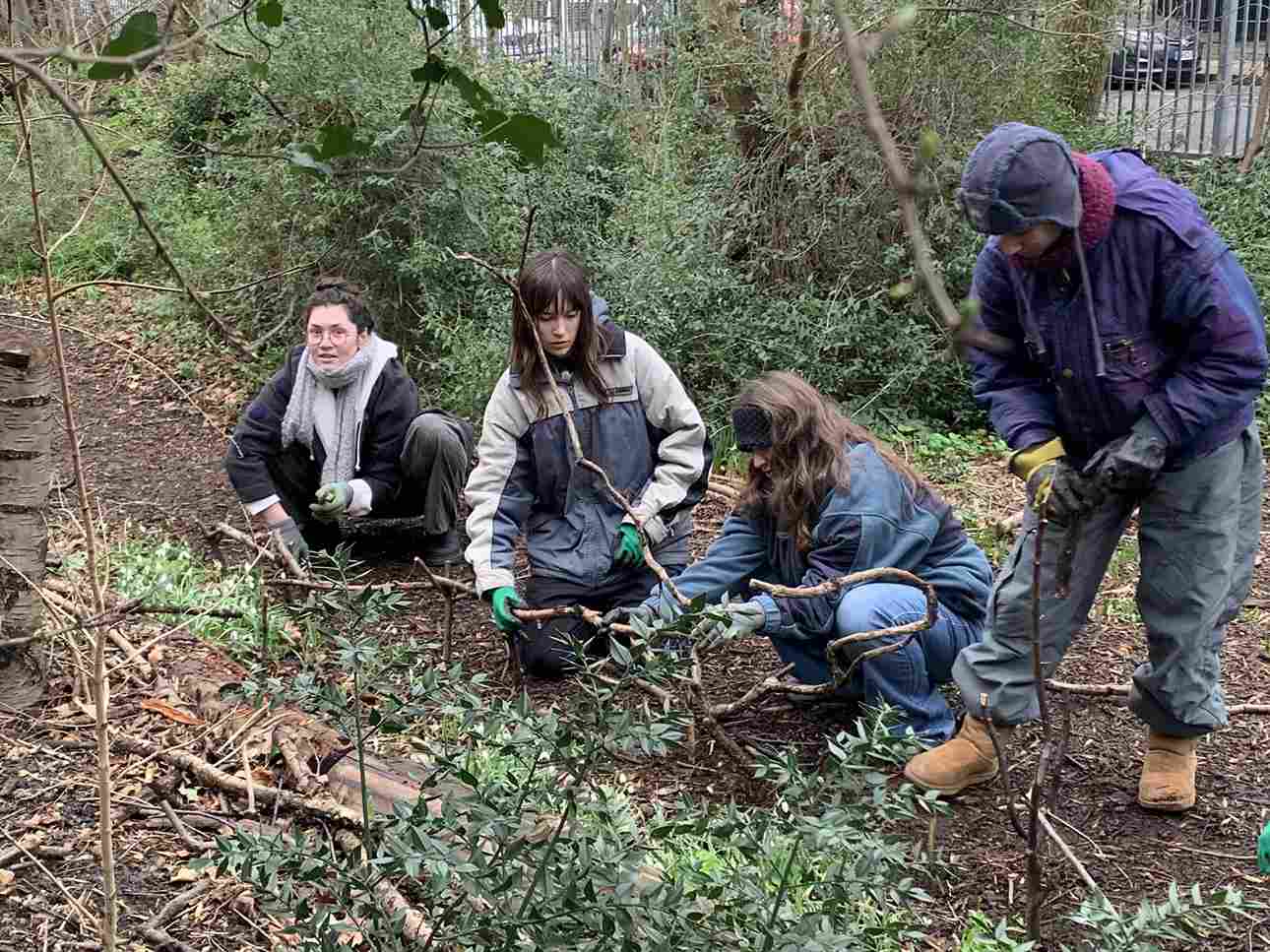
Ella Cockman
BASc Year 2
Digital Detoxes: Finding Social Media Balance
How do emotional and linguistic patterns in online digital detox communities reflect, shape, or predict individual experiences of digital wellbeing interventions?
Wellbeing
Community
Technology

©
Ella Cockman
Summary
This project explores the relationship between online discourse in digital detox communities and individual experiences of behavioural change. While existing research has thoroughly documented the adverse psychological effects of digital overuse, it often overlooks the role of collective meaning-making in online spaces like Reddit. Digital detox forums represent a unique form of peer-led intervention—but do they reflect lived experiences or merely promote aspirational narratives?
Through an explanatory sequential mixed-methods study, I analysed 7,000 Reddit posts from digital detox communities using natural language processing to identify emotional and thematic patterns. These findings were then tested through a 5-day digital detox intervention involving 24 university students, using wellbeing scales, reflexive journals, and interviews. The results revealed that dominant emotional patterns within communities—especially a shift from powerlessness to empowerment—were echoed in personal experiences, though individual trajectories were more temporally dynamic and emotionally complex.
Through an explanatory sequential mixed-methods study, I analysed 7,000 Reddit posts from digital detox communities using natural language processing to identify emotional and thematic patterns. These findings were then tested through a 5-day digital detox intervention involving 24 university students, using wellbeing scales, reflexive journals, and interviews. The results revealed that dominant emotional patterns within communities—especially a shift from powerlessness to empowerment—were echoed in personal experiences, though individual trajectories were more temporally dynamic and emotionally complex.
Approach and Methodology
This project began with a problem area: while digital overconsumption and its psychological impacts are well documented, less is known about how online communities discussing digital detox shape or reflect real behavioural change. I was particularly curious whether Reddit’s digital detox forums mirrored lived experiences or promoted aspirational narratives.
With no existing methodology to directly connect community discourse with personal outcomes, I developed an explanatory sequential mixed-methods design. In Phase 1, I conducted computational analysis on 7,000 Reddit posts from digital detox communities. NLP methods captured emotional patterns beyond basic sentiment, and topic modelling was applied to identify dominant themes. Statistical tests confirmed significant differences in emotional tone and topic distribution between detox and control communities.
These findings directly shaped Phase 2, a 5-day digital detox intervention with 24 university students. Participants completed well-being scales, daily journals, and post-intervention interviews. The thematic and emotional insights from Phase 1 informed journal prompts and interview questions, allowing for targeted exploration of whether community discourse aligned with individual experience.
The research was informed by computational linguistics, behavioural psychology, and digital wellness studies. Linguistic tools enabled large-scale emotional analysis, while psychological frameworks guided intervention design and interpretation.
Combining these methods revealed key temporal dynamics: while Reddit discourse showed dominant empowerment language, participants described a progression from powerlessness to empowerment over time. This insight—missed in static community analysis—emerged only through the sequential integration of big data and lived experience.
With no existing methodology to directly connect community discourse with personal outcomes, I developed an explanatory sequential mixed-methods design. In Phase 1, I conducted computational analysis on 7,000 Reddit posts from digital detox communities. NLP methods captured emotional patterns beyond basic sentiment, and topic modelling was applied to identify dominant themes. Statistical tests confirmed significant differences in emotional tone and topic distribution between detox and control communities.
These findings directly shaped Phase 2, a 5-day digital detox intervention with 24 university students. Participants completed well-being scales, daily journals, and post-intervention interviews. The thematic and emotional insights from Phase 1 informed journal prompts and interview questions, allowing for targeted exploration of whether community discourse aligned with individual experience.
The research was informed by computational linguistics, behavioural psychology, and digital wellness studies. Linguistic tools enabled large-scale emotional analysis, while psychological frameworks guided intervention design and interpretation.
Combining these methods revealed key temporal dynamics: while Reddit discourse showed dominant empowerment language, participants described a progression from powerlessness to empowerment over time. This insight—missed in static community analysis—emerged only through the sequential integration of big data and lived experience.
Proposal/Outcome
The primary outcome of this project was a short, accessible video explainer, created for a university wellbeing program. The video translated key research findings into a practical format and offered clear, evidence-informed recommendations for improving student support. Drawing on insights from the study, the video proposed that wellbeing services collaborate more closely with student unions to co-create regular drop-in sessions and conversation circles, where students can openly discuss how their online lives are affecting their mental health and academic experience.
These recommendations highlight that digital well-being challenges are often emotionally complex and socially shaped. As such, universities should move beyond one-size-fits-all advice and instead prioritise student-led, relational spaces that reflect the peer support dynamics found in online communities. The project concludes that such interventions—grounded in lived experience and informed by community discourse—can better support students in moving from digital overwhelm to a sense of agency and control.
These recommendations highlight that digital well-being challenges are often emotionally complex and socially shaped. As such, universities should move beyond one-size-fits-all advice and instead prioritise student-led, relational spaces that reflect the peer support dynamics found in online communities. The project concludes that such interventions—grounded in lived experience and informed by community discourse—can better support students in moving from digital overwhelm to a sense of agency and control.
Beyond Outcomes
I'm proud of running a social experiment with my peers and grateful for the university community's support in encouraging me to explore and test ideas. I learned a lot about perseverance, working independently, and managing the intensity of a short project. Combining my interests in sociology, psychology, and computational linguistics in a real-world study was incredibly rewarding. This experience has deepened my passion for exploring how data and lived experience can work together to improve digital wellbeing.
Want to learn more about this project?
Here is some student work from their formal assignments. Please note it may contain errors or unfinished elements. It is shared to offer insights into our programme and build a knowledge exchange community.


Overall LIS Journey
About me

Hi, I’m Ella. I’m about to start my third year at LIS and have really enjoyed the interdisciplinary journey so far. I love combining my interests in sociology, psychology, and computational linguistics to better understand culture, media, and technology. Outside of academics, I enjoy swimming, sauna sessions, keeping fit, and socialising with friends—activities that help me find balance and stay grounded. This summer, I’m interning at Stamp, where I’m conducting research on ethics and certification frameworks for technology companies, deepening my understanding of responsible digital innovation.
.svg)
Other Related Projects
Back to the repository


How Can A Computational Model Guide the Optimisation of Interdisciplinary Team Design
- A Pilot Based on Heathrow's Sustainability Goals
AI
Future of Work
Technology






